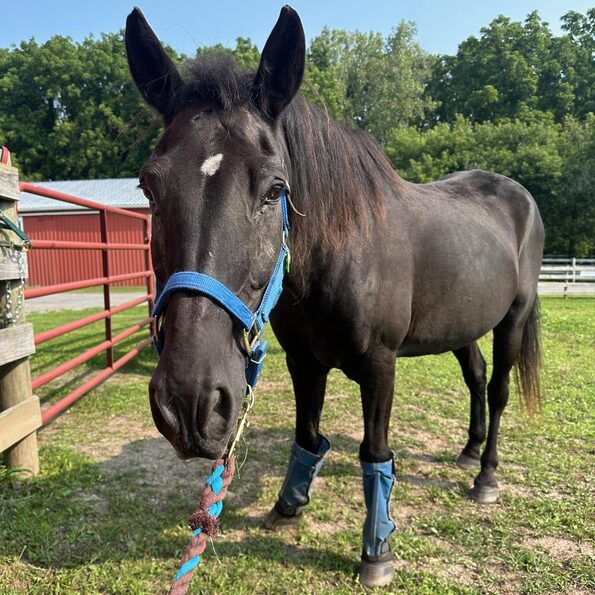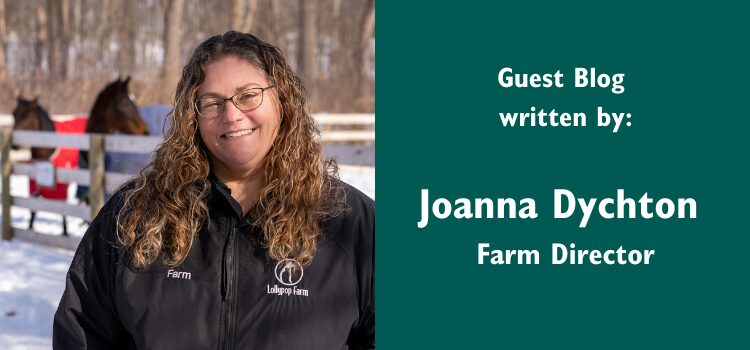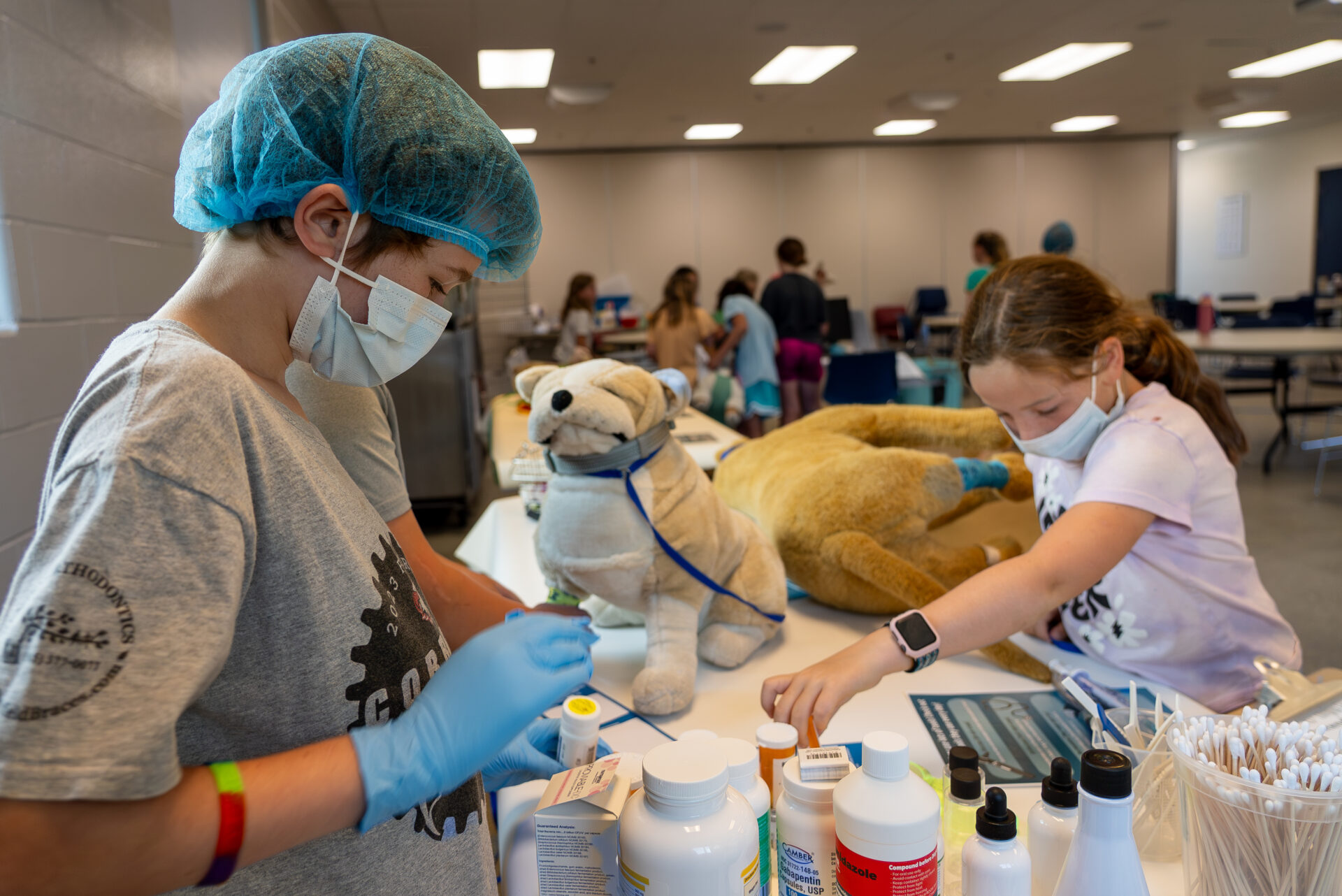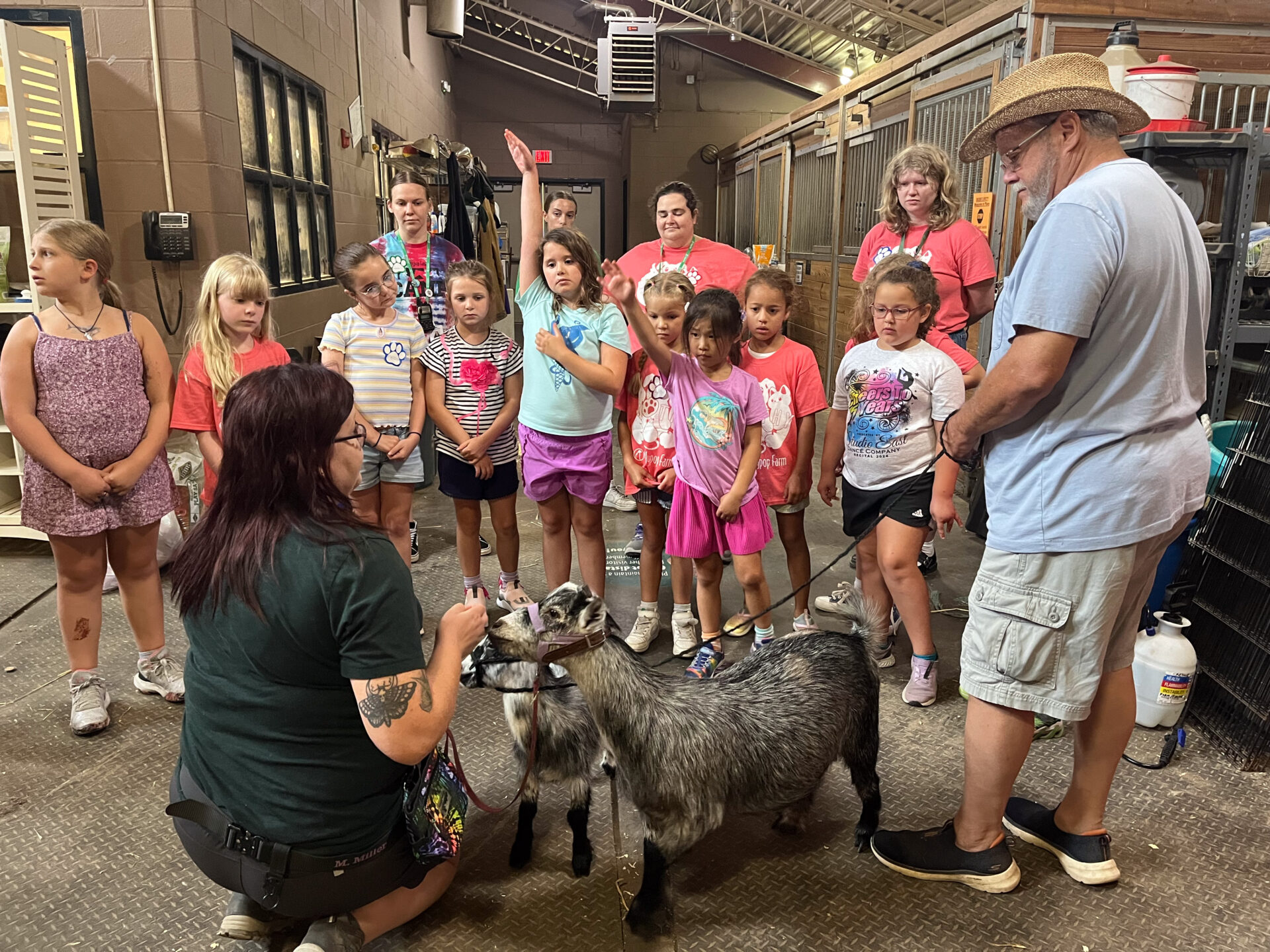In August 2024, several horses in New York State tested positive for Eastern Equine Encephalitis (EEE) in multiple counties: Saint Lawrence, Madison, Oneida, Orange, Ulster, Cayuga, Wayne, and Washington. EEE is a rare but severe viral disease spread by infected mosquitoes. While it can affect both people and horses, owners can rest assured that there is no risk of EEE spreading from horses to humans through contact.
Clinical signs of EEE may come on abruptly. Symptoms in horses:
- Depression
- Anorexia
- Fever
- Lethargy
- Neurologic signs – tremors, weakness, ataxia, paralysis, seizures, decreased awareness of surroundings, recumbency
Why is it important to know what to look for? There are many diseases that can present themselves the same way. Working with your vet to diagnose what is happening as soon as you notice something can help you provide the best care for your horse. Your veterinarian will diagnose EEE through bloodwork. If your horse is positive, the prognosis is, unfortunately, poor. The disease has a 90% mortality rate, and those who do survive can have permanent brain damage. Luckily, there is a vaccination to prevent this fatal disease.
At Lollypop Farm, potential adopters are counseled before adopting to ensure adopters understand proper veterinary care and important yearly vaccinations. While many horses do not leave the property they live on, mosquitoes move around. This means that the risk for EEE is present anytime mosquitoes are out. It is important to keep horses current on vaccines and Coggins to protect them from potential diseases. Many large animal veterinarians will also require a yearly physical exam for a horse to stay in their care, so it’s essential to keep your horse up-to-date.

Many, if not all, of the horses lost to EEE in NYS in August were not vaccinated. Vaccinations are not only important to keep your own horse safe, but helping to protect other animals and people in our community. Infected horses bitten by another mosquito can further spread the disease when the mosquito flies away to bite another animal or person, continuing to spread the disease.
From UCDavis article
The American Association of Equine Practitioners (AAEP) recommends the EEE vaccine as a core vaccine. Horses should be kept up to date on vaccinations, which are usually administered yearly
boosters may be recommended more frequently in warm climates with year-round mosquito activity). Boosters may be advised when outbreaks occur. Work with your veterinarian to establish an
appropriate vaccination schedule for your horse and situation. In addition to vaccination, it is important to practice good vector control to protect your horse from EEE. Use insect repellents and keep horses in at night when mosquitoes are most active. Eliminate mosquito breeding grounds such as standing water, brush piles, and old tires. Stock tanks and water troughs with mosquito-feeding fish.
Links to NYS Department of Health articles can be found here and here.




